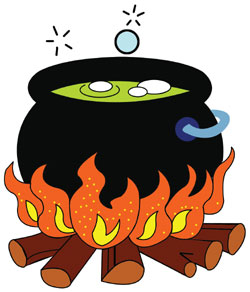 There are no free lunches, no quick fixes. Life is a struggle, a series of challenges that take time to overcome. But as Nepal lurches along at the moment, a few things come to mind that might help a lot, fairly quickly. A useful exercise for any politician or development expert might be to make such lists themselves, assuming they're sincere-a big assumption.
There are no free lunches, no quick fixes. Life is a struggle, a series of challenges that take time to overcome. But as Nepal lurches along at the moment, a few things come to mind that might help a lot, fairly quickly. A useful exercise for any politician or development expert might be to make such lists themselves, assuming they're sincere-a big assumption.
What about English? Nepali has been a great success in this country as a lingua franca, a way to enable communication and politics from one end to the other. Controversial perhaps with janjatis and others, but none of them would advocate scrapping a national language.
They just want their own tongues respected and taught. To this I propose a national push to make Nepalis at least trilingual. Their mother tongue, Nepali and English should be comprehensively available in schools. English is the world's language it does not belong to England, America or even, these days, India. If you want to set up a business deal between China and Argentina, you do it in English.
Imagine a trilingual Nepal where people from Jhapa spoke Nepali to do business with fellow citizens in Humla, then completed the deal with a call to Beijing or Cape Town in English. At home, the joys of indigenous languages could be celebrated in literature and song enabled by a booming economy where everyone could speak to, and deal with, everyone else. Britain, America, and other English speaking countries could help enable this. So of course could India. It would produce only gains and there is no chance of either Nepali or anyone else's mother tongue being swamped or swept aside. Nepal's living culture is powerful and its people are resilient, accepting change while retaining what works for them. Like their own languages.
Onto water. Isn't it time this country took its water resources seriously? A grand debate needs to go on with town hall meetings across the country. An independent assessment of hydroelectric and water potential, perhaps conducted by a United Nations agency or a consortium of respected INGOs and local organisations, must be conducted, and then let the debate begin.
It's obvious the country needs the jobs, resources, and electricity that proper water conservation and development will bring. It's also clear that there isn't enough money here to invest in projects on the scale that's necessary. But private investment alone is not enough, not accountable nor in the best interests of all concerned. Civil society and water users need to be involved at every level, with full access to information and spirited advocacy. There is no shortage of international discourse and debate about water. Nepal needs to join this, contributing and learning by turns.
The Nepali diaspora has always been a force for change in this land. Whether British Gurkha soldiers returning after the two World Wars of the last century, or the current crop of labourers and security people who toil around the globe, Nepalis abroad retain a love of their homeland and a real determination to help.
Political change was catalysed by the Gurkha post-war experience; the grievances that helped the Maoists to power were pushed and funded in part by disgusted Nepalis abroad who wondered why they had to leave home to support families and build houses.
Today's diaspora is vast and more well-educated and worldly than ever. It has much to offer in cash and kind and needs to be listened to. Pakistan has long had a Ministry of Overseas Pakistanis to harness the energy of countrymen and women abroad. Why not start with that here, with government and independent agencies to engage with the world's Nepali community and work to apply their energy and resources at home.
Make your own list. What less than obvious things can be done to get this country moving? The space to do so has never been more open.



